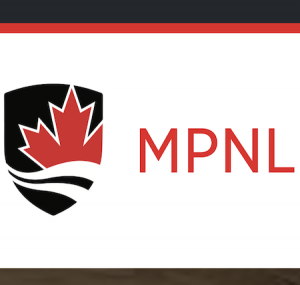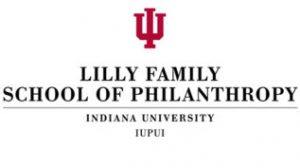
Why does Canada lag far behind other countries in supporting graduate education and research for the philanthropic and nonprofit sector? There are numerous specialized centres and programs in Europe and the UK, with a new one recently established at Oxford. China, too, has created a wide range of centres and schools at its top universities and has generated 5,346 doctoral and master’s theses on nonprofit research over the past twenty years (Yang & You, 2020).
A comparison with the US is particularly instructive for understanding not only why Canadian education and research in the field remains under-developed, but also how to strengthen this infrastructure in our country.
 The US has 160 graduate programs with a concentration in nonprofit management and philanthropic studies (NMPS) including 35 full Master’s programs (Mirabella et al., 2019). In addition, there are 31 centres or institutes (which have direct reporting lines to a dean or provost) on NMPS that support research as well as professional development (Weber & Brunt, 2022). Canada has only one graduate program – the Master of Philanthropy and Nonprofit Leadership, at Carleton University.
The US has 160 graduate programs with a concentration in nonprofit management and philanthropic studies (NMPS) including 35 full Master’s programs (Mirabella et al., 2019). In addition, there are 31 centres or institutes (which have direct reporting lines to a dean or provost) on NMPS that support research as well as professional development (Weber & Brunt, 2022). Canada has only one graduate program – the Master of Philanthropy and Nonprofit Leadership, at Carleton University.
Private Investment and Transformative Gifts
Population size does not account for this big difference. Rather, in the US, private investment was an important mobilizer and continues to be a key factor in building the education and research infrastructure. Beginning in the 1980s, foundations supported the creation of graduate programs with the aim of enhancing management practices in the sector and building bridges between practice and academia (Weber & Brunt, 2022).
This initial investment had a multiplier effect. Educational programs hired faculty who brought in graduate students and research funding. These, in turn, led to the establishment of programs and centres at other universities, generating even greater demand. All of this required and received new philanthropic support that made it possible to create centres and research chairs across universities, and through them provide for diversification and specialization – as with, say, the Eileen Lamb O’Gara Endowed Chair in Women’s Philanthropy, the Frey Foundation Chair in Family Philanthropy, and the Charles Stewart Mott Foundation Chair on Community Foundations.
 A transformative gift from the Lilly family and Lilly Endowment established the Lilly Family School of Philanthropy, at Indiana University, in 2012. The Lilly Family School has become the world’s premier academic institution in the field hosting 19 core faculty (among other instructors) and offering a PhD, Professional Doctorate, Master’s and undergraduate degrees in philanthropy.
A transformative gift from the Lilly family and Lilly Endowment established the Lilly Family School of Philanthropy, at Indiana University, in 2012. The Lilly Family School has become the world’s premier academic institution in the field hosting 19 core faculty (among other instructors) and offering a PhD, Professional Doctorate, Master’s and undergraduate degrees in philanthropy.
The recognition of the need to invest in education and research infrastructure for the sector has largely been absent in Canada. An additional constraint has been the absence of a natural academic home for NMPS within universities. The likely disciplines of Political Science and Sociology have long abandoned any interest in philanthropy or nonprofit studies (as opposed to social movement studies) (Skocpol, 2016).
What Happened In Canada?
In the US, a home was found in schools of public administration that were adept at adding nonprofit management to their existing repertoire of public management programs (Saidel & Smith, 2015). While Canada has a large number of well-established schools of public administration, they tend to be more focused on public policy and the study of administration from an institutional perspective, rather than on management. That Carleton’s MPNL is housed in a school of public administration, which is part of a unique Faculty of Public Affairs, is a function of the initiative by its founding academic entrepreneurs (as will be discussed in a following piece), rather than a welcoming field of public administration comparable to the US. (Note that the School of Public Administration at the University of Victoria has a Masters of Community Development.)
The study of nonprofits and their relationships with governments has been further inhibited by a lack of visibility in Canada both among governments and among scholars who study governance. Neoliberalism and New Public Management became prominent in the 1980s, encouraging governments to contract out or privatize more services. Nonprofits were conceived of simply as alternative service providers – undifferentiated from private sector firms in spite of their distinctive roles in civil society. The government-nonprofit relationship continues to be overlooked in scholarship and in practice.
 When Canadian universities have taken an interest in NMPS education, they took an inexpensive route, due in part to fiscal austerity, by offering certificates through continuing education (Mirabella et al., 2022). Because certificate programs are usually taught by temporary contract instructors and are offered on a cost-recovery basis, they are less costly than investing in permanent faculty or degree programs and centres. While this non-degree programming has value for upskilling nonprofit professionals, it cannot act as a mobilizer and multiplier to build the NMPS field. The cycle becomes self-reinforcing: without faculty, no degree programs are created, and without degree programs, there is no investment in faculty.
When Canadian universities have taken an interest in NMPS education, they took an inexpensive route, due in part to fiscal austerity, by offering certificates through continuing education (Mirabella et al., 2022). Because certificate programs are usually taught by temporary contract instructors and are offered on a cost-recovery basis, they are less costly than investing in permanent faculty or degree programs and centres. While this non-degree programming has value for upskilling nonprofit professionals, it cannot act as a mobilizer and multiplier to build the NMPS field. The cycle becomes self-reinforcing: without faculty, no degree programs are created, and without degree programs, there is no investment in faculty.
As the US experience demonstrates, field-building takes:
- centres or schools with faculty and direct reporting lines to university decision-making authorities, so they are taken seriously;
- the cultivation of new academic leadership through bringing in new generations of researchers and the succession of retiring faculty; and
- the strategic pursuit of endowments and other long-term investments (Weber & Brunt, 2020).
Canada failed to build the substantial educational and research infrastructure needed to support the philanthropic and nonprofit sector. And, what had been built has shrunk in recent years. In the late 1990s, the J. W. McConnell Family Foundation generously funded a master’s program at McGill to upskill two cohorts of nonprofit executive directors, but McGill did not continue the program after those two years.
The nonprofit specialization in the MBA at the Schulich School is now defunct following the retirement of the RBC Professorship in Nonprofit Management and Leadership – a position that no longer exists. The Certificate in Philanthropic Management at the Université de Montréal closed in 2022. Humber College has ended its post-graduate certificate in Fundraising Management, albeit with the possibility of eventually reinventing it (note that there is an accelerated pathway into the MPNL for its graduates). Programs that had some NMPS content at Queens, Dalhousie, Grant MacEwan, and Mount Royal Universities have all ceased. Several reasons account for this scaling back: the programs were not fully institutionalized within their universities in the first place, as they were not anchored with regular faculty, retirements were not replaced, or sustained funding was not secured.
Here We Are Today

Read “The Benefits of a School of Philanthropy in Canada,” another installment in the “Building Bridges” series.
And yet at the same time, the demand for education and research in the nonprofit/philanthropic sector is increasing. The 2023 (eleventh) cohort of Carleton University’s MPNL program was the largest ever, at 36 incoming students, with more than three times that number having applied. It is clear that investment pays off.
The payoff of investment in research is illustrated by the productivity of PhiLab, a research project housed at the Université du Québec à Montréal. Focused on research on grantmaking foundations and funded by grants from the Social Sciences and Humanities Research Council of Canada and from foundations (a total of $4.8 million), PhiLab has provided funding to scholars across the country to work on issues of relevance to foundations and has been very active in knowledge mobilization. However, PhiLab’s future is also in question when its funding ends in 2024 and its academic lead retires.
Now is the time to recognize and act on Canada’s need to build and support an education and research infrastructure for the nonprofit sector. It’s time for this sector to benefit from a dedicated school, just as the private sector does with business schools.
References
Mirabella, R., Sulek, M. & Teo, T. K. (2022) Mapping the field of nonprofit management and philanthropic studies in Canada: Cross-country comparison of curricular offerings, Journal of Nonprofit Education and Leadership, 12(1): 1-21. https://doi.org/10.18666/JNEL-2021-10959
Mirabella, R., Hoffman, T., Teo, T., & McDonald, M. (2019). The evolution of nonprofit management and philanthropic studies in the United States: Are we now a disciplinary field? Journal of Nonprofit Education and Leadership, 9(1), 63–84. https://doi.org/10.18666/JNEL-2019-V9-I1-9598
Saidel, J. & Smith, S. R. (2015) Nonprofit management education in schools with public affairs curricula: An analysis of the trend toward curriculum integration, Journal of Public Affairs Education, 21(3): 337-348. https://www.jstor.org/stable/24615512
Skocpol, T. (2016) Why political scientists should study organized philanthropy: Introduction, PS: Political Science & Politics, 49(3): 433-436.
Weber, P., & Brunt, C. (2022). Building nonprofit management education in the US: The role of centers in supporting new academic disciplines. Journal of Public and Nonprofit Affairs, 8(1): 96–121. https://doi.org/10.20899/jpna.8.1.96–121
Yang, L. & You, F. (2020) Research trends in nonprofit graduate studies in China: An inside perspective, Nonprofit Management & Leadership, 31: 175-197. DOI: 10.1002/nml.21427
Dr. Susan Phillips is on LinkedIn. Banner photo is courtesy of Keith Kiselstone.
Please sign up for the MPNL newsletter, PANL Perspectives.
Monday, December 11, 2023 in Building Bridges, Governance, News & Events
Share: Twitter, Facebook



